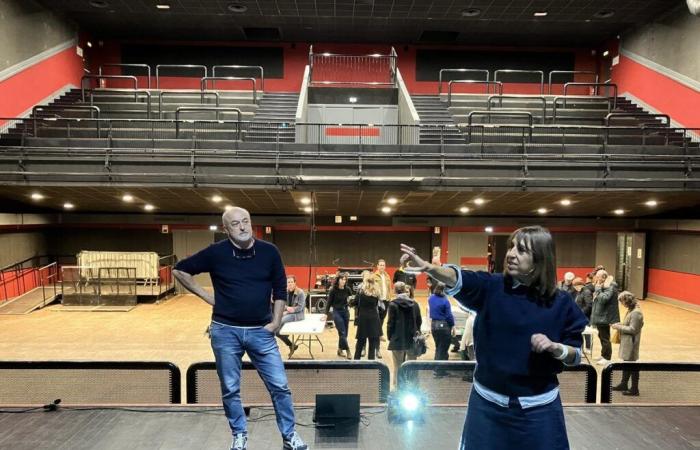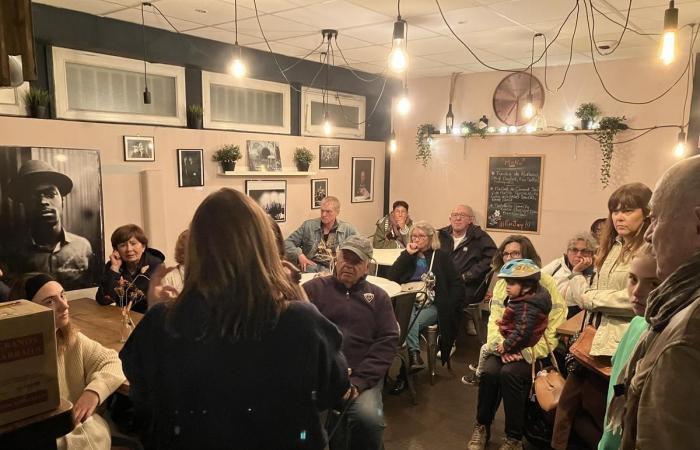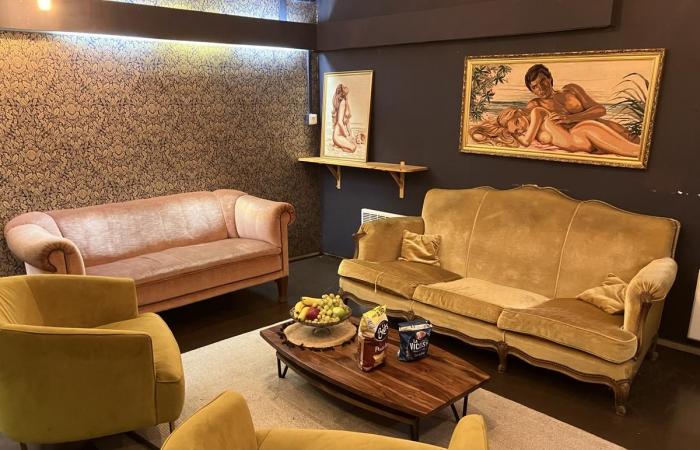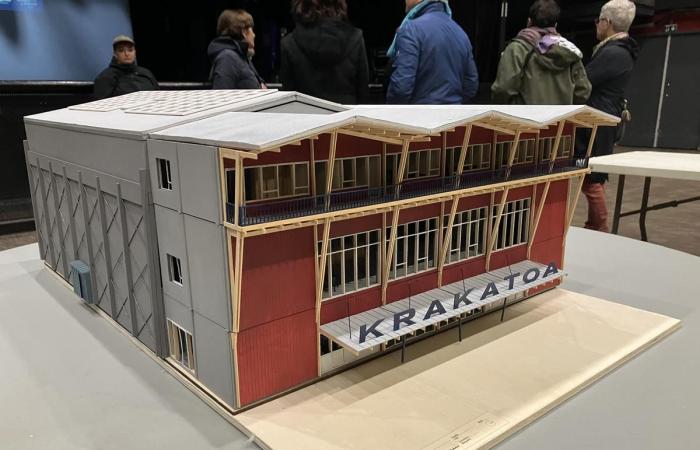UThe page will soon turn in the Arlac district, in Mérignac. A new one will be written, in 2026, with a completely renovated Krakatoa concert hall, larger and more modern. This 7.9 million euro transformation (funding shared between the City, the Regional Directorate of Cultural Affairs and the Region) will begin in January, for an estimated duration of thirteen months. The last concert will be played this Thursday, November 28, with the Bordeaux rock group JC Satàn, before a last Krakaboum (for children), on November 30.
Before its closure, Didier Estèbe and Lili Dieu, from the Transrock association, which manages this room belonging to the town hall, gave a tour behind the scenes one last time, on Tuesday November 12. Around forty people immersed themselves in the history of this legendary hall, one of the oldest Contemporary Music Stages (Smac) in France, walking the stairs, the dressing rooms, the kitchen or the stage, admiring the collection of photographs of artists hung on the walls (including that of saxophonist Maceo Parker, godfather of Krakatoa) and the list of all the groups that have passed through, written on the floor of the entrance hall.
Photos of groups who have passed through Krakatoa are displayed everywhere, even in the dressing rooms.
N.L.
These cramped premises, “of which we count every square meter”, laughs Didier Estèbe, have nevertheless contributed to the charm of this room. The vintage decor, the cozy atmosphere and the tight walls in the basement enhance the intimate side. There is a certain proximity between the artists and the staff, like the kitchen, “where the musicians feel at home,” explains Lili Dieu.
N.L.
The artists have lunch in this kitchen before each concert.
And at each concert, the charm of proximity operates between the artists and the spectators, thanks to a stage very close to the public. “We don’t have the impression that we can accommodate 1,200 people here, and yet, it’s as many as at Rocher de Palmer! » remarked a visitor. This DNA has made Krakatoa’s reputation, from France to abroad.
N.L.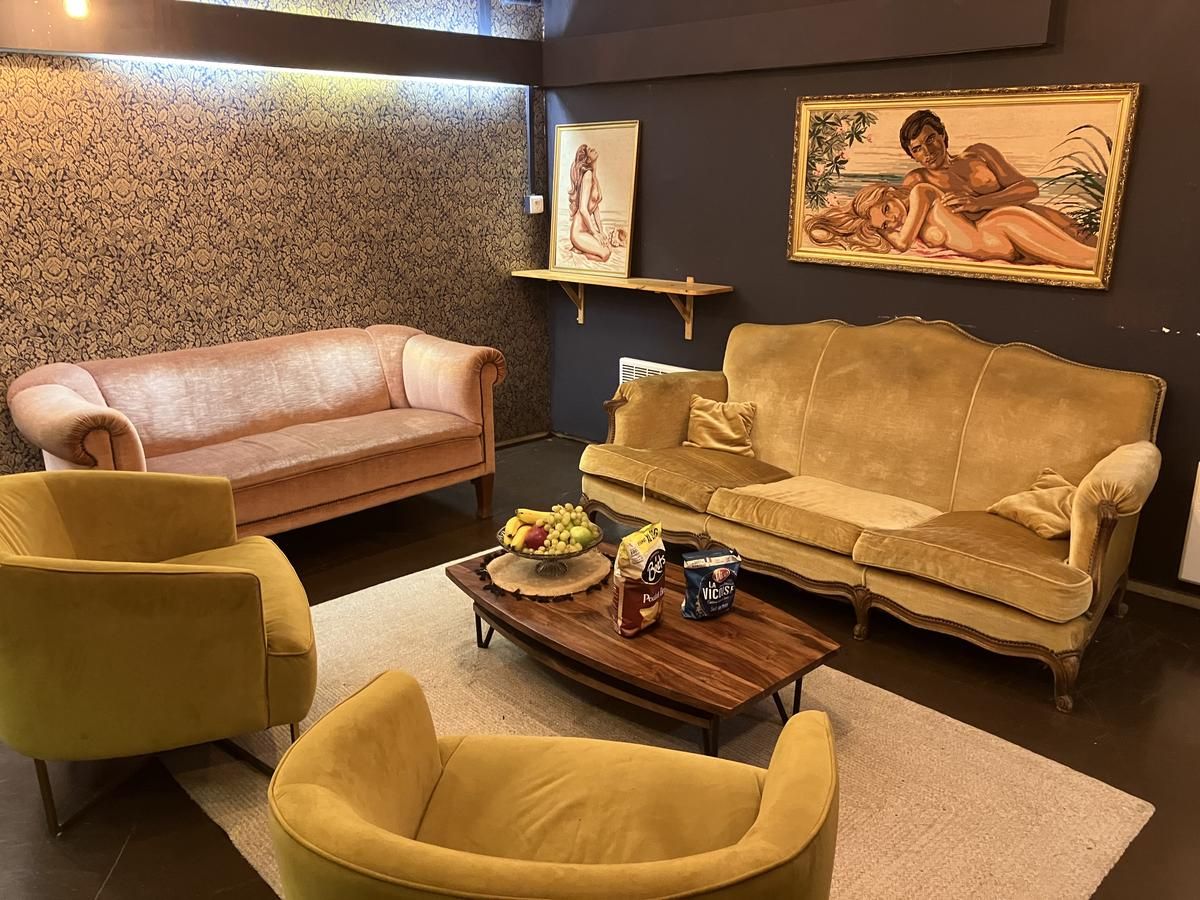
The room has several small dressing rooms in the basement, which will be moved upstairs with a balcony after renovation.
34 years of history
On March 17, 1990, the first concert was given in this former Arlac village hall, a building built in 1960. Since then, hundreds of groups, French and international, have made these walls vibrate. Among them, many future stars at the start of their careers, “like Muse or Stromae, who were not even complete at the time,” recalls Lili Dieu. Krakatoa has always aimed to unearth talent. With nearly 30,000 spectators per year, around a million people have discovered local artists or headliners over the last thirty-four years.
But beyond the stage, Krakatoa has also played a major role in supporting local artists (with the creation of a dedicated center in 1992) and mediating with the public (a center created in 2009), everywhere in the region, to create connections through music. In its new version, a mediation room will also be added to continue this mission. The Transrock association would like to make Krakatoa a place of life that welcomes the public, even outside of concerts.
“Essential for artists”
The capacity will increase from 1,200 to 1,500 seats, with passageways added to the sides of the balcony, and a ceiling height increased by a few meters. The acoustics, already excellent, will be improved. A second room with 250 seats will allow young artists to be discovered. The sound and thermal insulation will be reviewed, as well as all the aesthetics. 140 m² of photovoltaic panels will be installed on the roof. Above all, the artists’ dressing room and reception area will be enlarged, moved upstairs and modernized. The current one is very cramped and not very suitable for transporting the groups’ equipment.
“This renovation is essential to improve the comfort of artists,” assures Didier Estèbe, president of Transrock. No major transformation has taken place since 1990. “Until now, the association had to adapt to the equipment. With the renovation, it is the equipment that now adapts to Transrock’s activity,” adds Vanessa Fergeau-Renaux, Mérignac culture assistant.
N.L.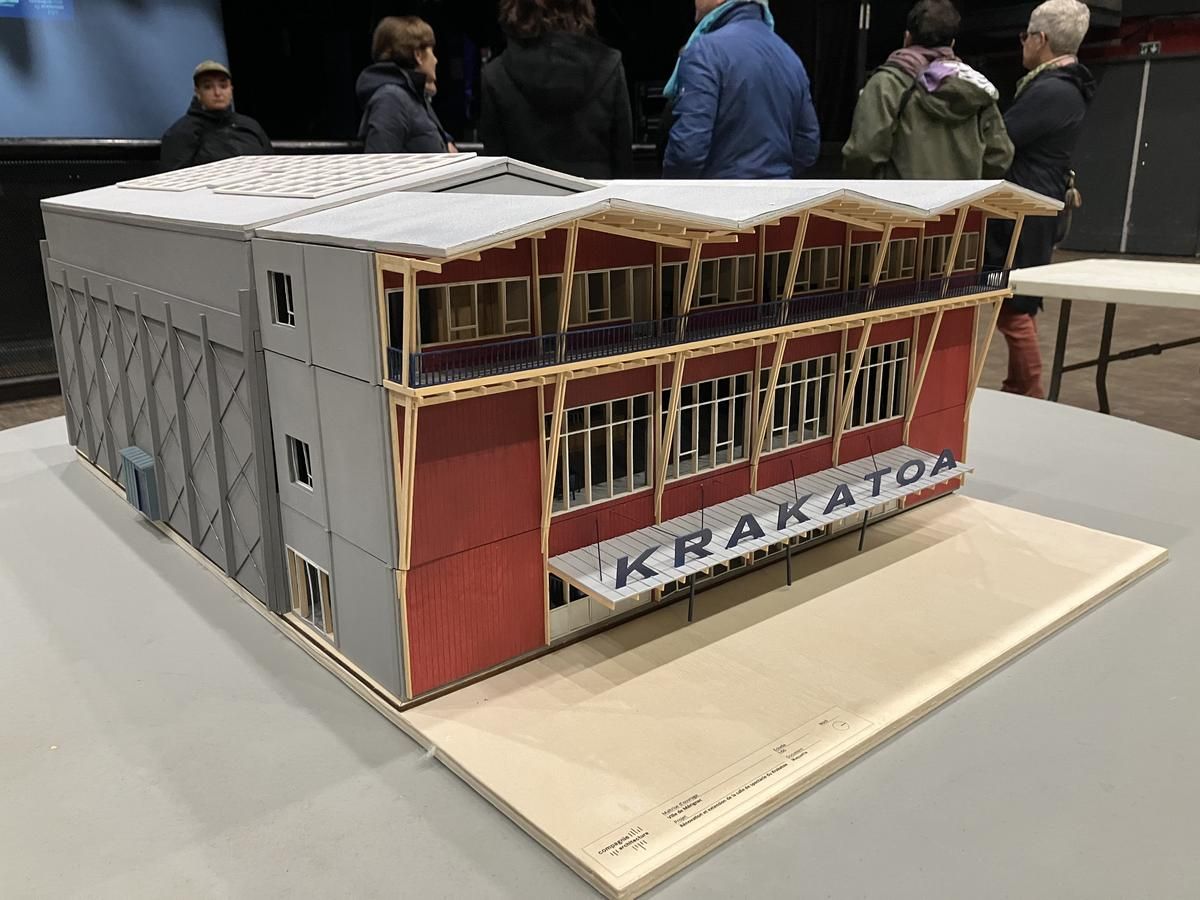
The model of the future Krakatoa concert hall has been unveiled.
During this last behind-the-scenes visit, the model of the future room was revealed by the Mérignac builder Dune Constructions. The extension will instead be towards the Marcelin-Berthelot school and Avenue Victor-Hugo, in order to reduce nuisance for local residents. Some were hoping for more parking spaces, “to avoid everyone parking in the surrounding streets, like at every concert”, which will not be the case.
Delivery of the project is scheduled for March 2026. Concerts are expected to resume in September 2026.

